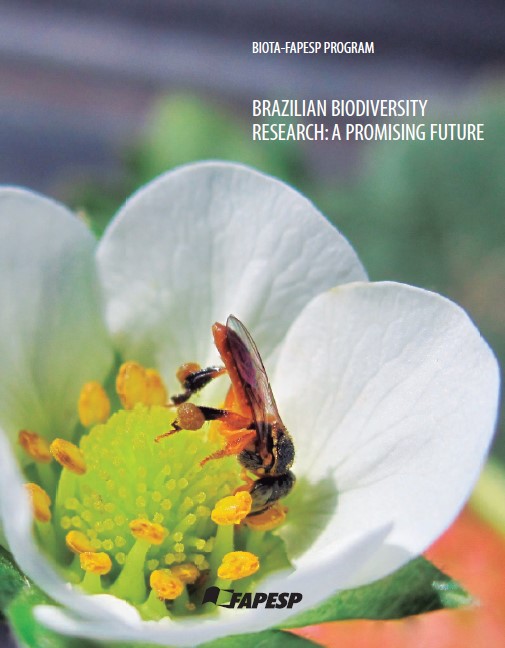Resumo: Descreve o Programa BIOTA, uma iniciativa de pesquisa coordenada pela FAPESP, focada na biodiversidade brasileira, particularmente no estado de São Paulo. O programa visa catalogar, caracterizar e promover a conservação e o uso sustentável da vasta diversidade biológica do Brasil, que abriga cerca de 20% das espécies mundiais. Projetos específicos detalham pesquisas em diversas áreas, incluindo prospecção de novos produtos (subprograma BIOprospecTA), ecologia e evolução de organismos marinhos e terrestres (como cnidários, gastrotríquios, anfíbios e peixes), estudos de microbiomas, e a aplicação de descobertas para políticas públicas e gestão ambiental, como a implementação do Novo Código Florestal e o manejo de ecossistemas costeiros e florestais
Abstract: Describes the BIOTA Program, a research initiative coordinated by FAPESP, focused on Brazilian biodiversity, particularly in the state of São Paulo. The program aims to catalog, characterize, and promote the conservation and sustainable use of Brazil’s vast biological diversity, home to approximately 20% of the world’s species. Specific projects detail research in several areas, including prospecting for new products (BIOprospecTA subprogram), ecology and evolution of marine and terrestrial organisms (such as cnidarians, gastrotrichs, amphibians, and fish), microbiome studies, and the application of findings to public policy and environmental management, such as the implementation of the New Forest Code and the management of coastal and forest ecosystems.
Autoria: FAPESP
Disponível no CM-FAPESP